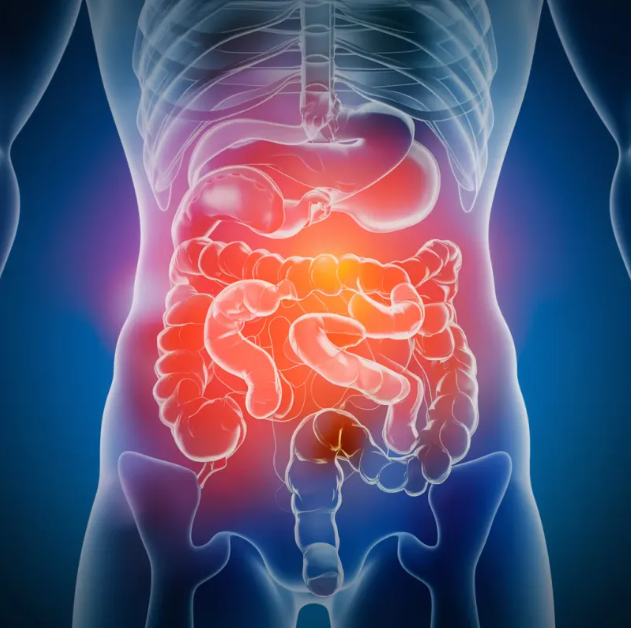Unlocking the Gut's Potential: How NMN Shapes Beneficial Bacteria Growth and Nurtures Gut Health
Understanding the Microbial World Within Us
Our gastrointestinal tract, often referred to as the "gut," houses a diverse community of bacteria that play a crucial role in our overall health. These microorganisms impact everything from our immune system to blood glucose levels. Recent research from the Jiangsu Academy of Agricultural Sciences in China sheds light on how Nicotinamide Mononucleotide (NMN) influences the growth of gut bacteria, particularly its role in promoting beneficial species.
NMN's Impact on Gut Bacteria Diversity
The study conducted by Tang and colleagues involved testing stool samples from nine healthy volunteers, aiming to mimic the conditions of human intestines. The addition of 500 mg of NMN to the simulated intestines led to a reduction in species diversity after 24 hours of fermentation. The results suggest that NMN inhibits the growth of certain gut bacteria during this period.
NMN and Bacteroides: A Symbiotic Relationship
Tang and colleagues' findings reveal a fascinating aspect of NMN's impact on gut bacteria. After 24 hours, NMN was observed to increase the growth of beneficial bacteria, particularly Bacteroides. This genus, along with others, contributes to the production of a beneficial fat called propionate, a key metabolite that supports normal gut function.
The Science Behind NMN's Influence on Gut Bacteria
Diving deeper into the specifics, the researchers identified changes in different genera of bacteria. NMN was found to elevate the levels of Bacteroides and other genera associated with propionate production, while harmful bacteria were reduced. These observations suggest that NMN selectively promotes the growth of beneficial gut bacteria, creating a more favorable microbial environment.
NMN and Short-Chain Fatty Acids (SCFAs): Nourishing the Gut
When our gut bacteria ferment undigested carbohydrates, they produce short-chain fatty acids (SCFAs), crucial for maintaining normal gut function. Tang and colleagues discovered that NMN treatment increased the concentration of SCFAs, particularly propionate, in the artificially digested human stool. This implies that NMN has the potential to enhance the production of beneficial SCFAs, contributing to overall gut health.
The Indian Perspective: Foods that Support Gut Health
In India, where diverse culinary traditions prevail, several foods have long been recognized for their positive impact on gut health:
Buttermilk (Chhaach): Available in various flavors, this traditional Indian drink aids in maintaining the body's fluid and salt levels, contributing to a well-balanced gut environment.
Idli: A staple in South Indian cuisine, idli is a fermented food rich in plant-based protein, fiber, and micronutrients. Its consumption aligns with the principles of fostering a healthy gut.
Curd: A probiotic-rich food widely consumed in Indian households, curd regulates bowel movements and provides a defense mechanism against infections, promoting a resilient gut.
Ginger: A common spice in Indian cooking, ginger possesses natural laxative properties that aid in relieving constipation, supporting digestive health.
Kefir: Although not traditionally Indian, incorporating probiotic-rich kefir into the diet can positively impact digestion, preventing bloating and flatulence.
Turmeric: Widely used in Indian spices, turmeric's antioxidant and anti-inflammatory properties contribute to improved digestion, reducing gut spasms and flatulence.
Timing Matters: Addressing the Duration of NMN Exposure
While the study provides valuable insights into NMN's impact on gut bacteria, there are considerations regarding the duration of exposure. Human digestion typically takes 6 to 8 hours, and the study exposed the bacteria to NMN for a full 24 hours. This raises questions about the likelihood of such extended exposure in real-life scenarios. Additionally, NMN remained almost entirely intact after 6 hours in the simulated intestines, suggesting rapid absorption.
Implications for NMN Supplementation in Humans
Despite the timing discrepancy, the study suggests that some effects observed in the artificial setting may translate to humans upon oral NMN supplementation. However, the effects are likely to be less pronounced. Future studies focusing on gut bacteria in individuals, especially across different age groups, after NMN supplementation could provide valuable insights into the real-world impact of this promising compound.
Nurturing Gut Health with NMN and Traditional Foods
In conclusion, NMN emerges as a potential player in shaping a healthier gut environment. By selectively promoting the growth of beneficial bacteria and elevating the levels of propionate, NMN holds promise for enhancing gut health. As science continues to unravel the mysteries of our microbial companions, NMN stands as a noteworthy candidate in the quest for optimal gut health, complemented by the longstanding wisdom of traditional Indian foods that have supported digestive wellness for generations.





